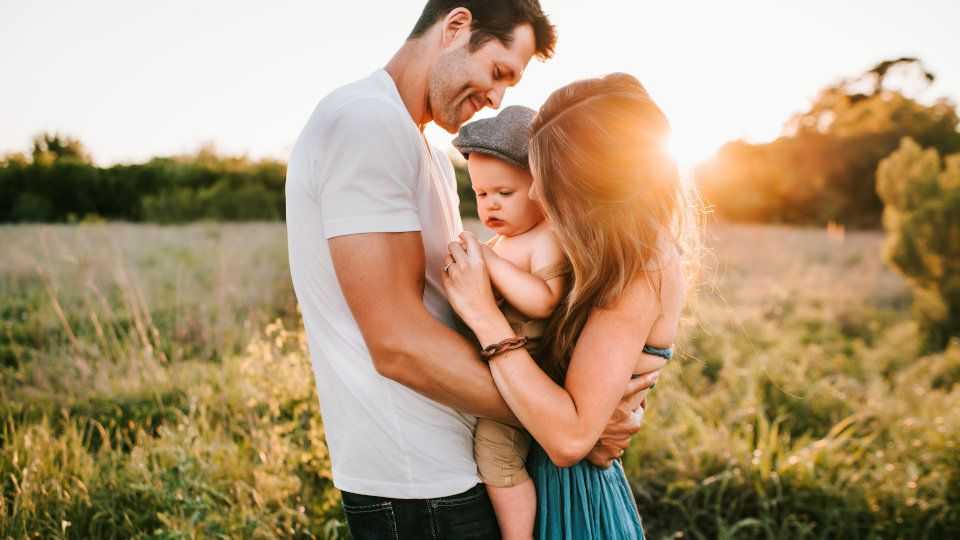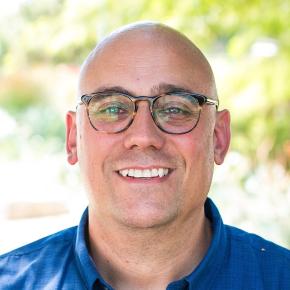Jon gives examples of how he has used questions to gently teach his children to think critically about the worldviews they encounter at school and in the media.
Transcript
Question: What ongoing conversations would you have with your kids to offset the indoctrination tactics that happen throughout their day in public schools? How often would you purposely have those conversations? Because it seems we wouldn’t want to bombard them.
Jon: My kids are in private school, but still they’re exposed to the world. I hate to say it, but just because my kids go to a small Christian private school doesn’t mean that every kid in the classroom is a Christian. There are other ideas that are floating around. Generally, I listen a ton, and I don’t always feel the need to respond. I ask a lot of questions. “So, hey. What did you think about this?”
Just the other day, my oldest daughter, who’s twelve, asked me and my wife, “Why do we always have to critique everything?” For example, whenever we watch a movie together as a family, I point stuff out as best as I can, and so does my wife. “Hey, did you see that?” They just turned something on. It was a Netflix show that they had started watching over at a friend’s house, and these friends are a good family, so we just assumed: They’ve watched this. Let’s let our kids watch this. And we’re watching it, and one of the lines was something to the effect that we don’t live by truth. In the woods, it’s not truth that matters, but our feelings—is what one of the main characters said. That’s a great opportunity to have a conversation.
So, when there are these big ideas, I bring it up, and it’s not always right away. Sometimes I’ll wait, and then, on the car ride to school, I’ll say, “Hey, last night—I just have a question. Did you hear this line? What do you think that means?” So, I’ll ask open-ended questions to them—instead of me just trying to teach it—and then offer corrections. But you don’t want to do it all the time. We’re very, very selective on what we let our kids watch most of the time. I’d say 80% of the time we preview the stuff for our kids, and, yes, we’re producing sheltered kids, but it’s kind of my job to protect my kids and shelter them.
Sometimes, the argument—and you’re welcome to this opinion—but sometimes the argument is, like, well, let them live out in the world and have experiences. My kids are going to have a lifetime of experiences. I’m trying to save them from a lot of the experiences that I had, in honesty, because they didn’t do any good. I want to teach them how to think about these things, how to process stuff, how to think critically. I am teaching them what to think, but underneath that, I’m teaching them how to think so that they can then process these things. So, in asking the questions, I hope I’m teaching them, “Wait. Maybe I should be asking questions.” And this is a conversation we had with my daughter the other night when she brought up the objection “How come we always have to be talking about this stuff?” I just said to her, “Because I want you to know the spiritual reality of the world. I want you to have discerning eyes and be able to see this stuff and then draw it out yourself.”
I have these conversations regularly with my kids when things get brought up. Every Sunday, they sit in church with us, so they get worldview training at church with us. We talk about the sermons through their homeschool curriculum, and through their school curriculum, there’s worldview. If you want a really great curriculum that you can buy, check out Elizabeth Urbanowitz. This is solid gold, guys. She’s incredible. She’s the founder and president of Foundation Worldview. Fantastic curriculum, here, if you want to have these types of conversations with your kids. It’s a great resource to you.
A lot of the ongoing conversations I have are about gender stuff. This started early with my kids, and it happened because we were watching The Baby-Sitters Club. My oldest daughter, Eva, was probably eight or nine. She was reading the Baby-Sitters Club books, which I remember my sister reading. Well, they’re not the same Baby-Sitters Club anymore. The books are the same, but we started watching the Netflix show, and the episodes were really great, with good morals for the most part—not from a Christian worldview, explicitly, but whatever. All truth is God’s truth. And then came the episode where they had a transgender girl. So, a boy that was a little boy—a grade school boy, maybe second grade—was dressing as a girl, and that issue came up really early on. We taught our kids, girls are not boys and boys are not girls, and we teach them this stuff, and we teach them why, and we don’t dull it down, by the way. We use the age appropriate, correct terminology. But that’s one of the things that I’m having a constant conversation with my kids on.
I always make sure I keep the lines of dialogue open. I’m constantly asking open-ended questions to my kids. It’s intentional. I use time in the car very purposefully, even if it’s just the fifteen- or ten-minute ride to school. I’m trying to ask them about their life, how they’re feeling, and stuff like this, and anything, of course, that they’re seeing on media. I just ask them about it. I don’t dig in deep all the time. It’s mostly me just asking questions, listening, and then guiding, occasionally, when I think guidance is needed.

